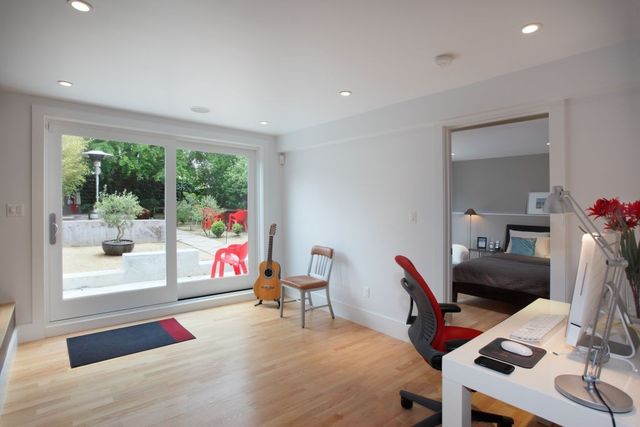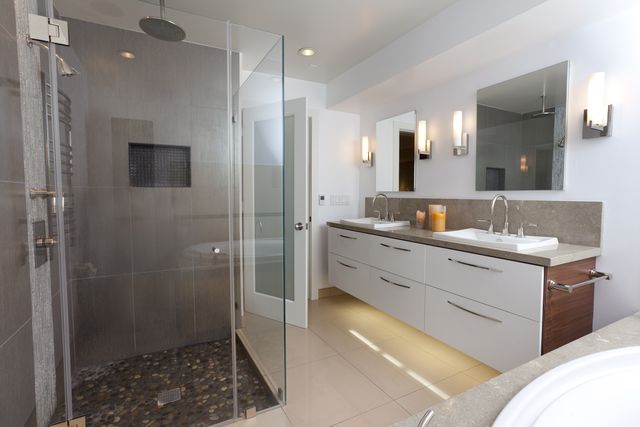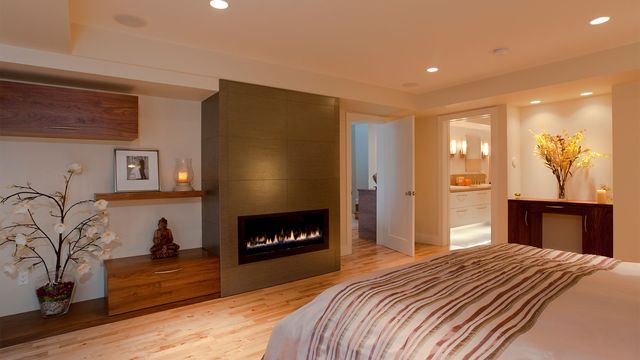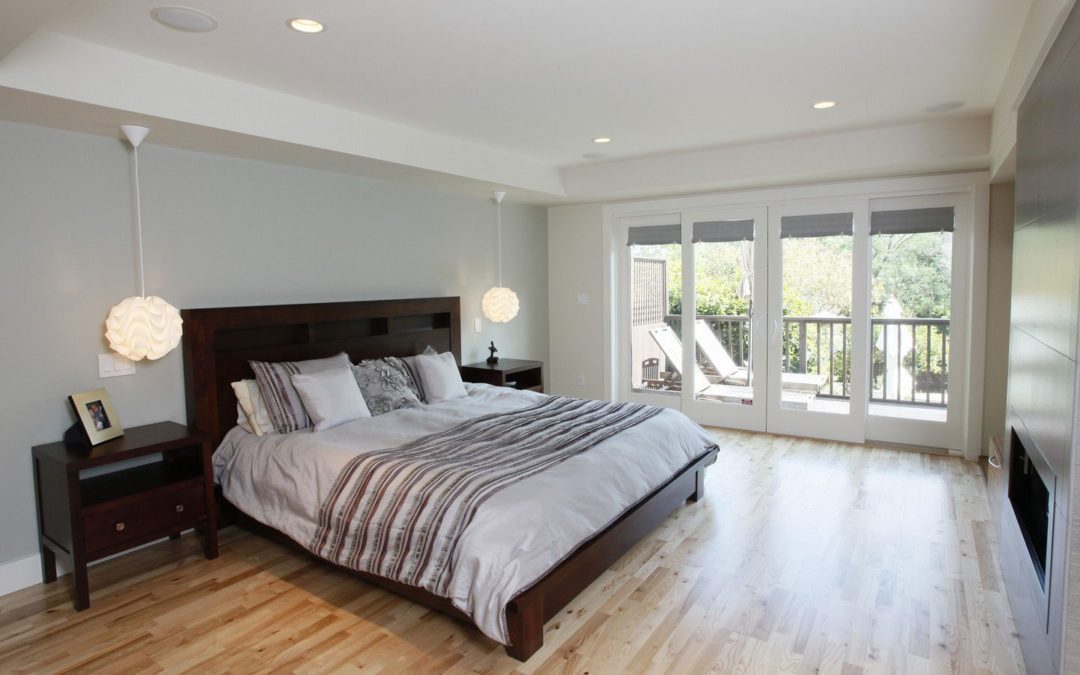Thinking of Converting Your Garage Into Living Space? Read This First: Massachusetts HomeBuyers HomeOwnership
You love your home, but spacewise, you’re bursting at the seams. Building an extension seems daunting, but moving out of your fabulous neighborhood is off the table. Hmm you do have that two car garage; perhaps you should convert it into a kids’ playroom, an office or gym for you, or even an in-law suite. A recent American Housing Survey showed that 80% of Americans have a garage or carport, yet only a fraction use it for parking. Let’s be honest: Most garages are packed floor-to-ceiling with sporting equipment, gardening tools, kids’ toys, and more.
Does converting a garage add value?
But before you transform this area, think about how a garage conversion will affect resale down the road. Nearly thirty percent of shoppers rate a garage as one of the most important home features, just ahead of an updated kitchen and open floor plan, according to a recent realtor.com® survey. Don’t despair we’re here to help you determine when converting your garage makes sense, and when it’s a definite no go.
Converting a garage is often more affordable than adding on

Michael O’Callahan Photography
If you add on to your house, you’re going to incur some major costs. Think of all the cash you’ll pour into a new foundation, or what you’ll pay to retrofit a second story on top of your home. “Typically, it’s more cost-effective to convert a garage or storage space,” says Derald Norton, president of BMF Construction in San Bruno, CA. Indeed, depending on where you live, building an addition could run you anywhere from $20,000 to over $75,000.
A garage renovation, on the other hand, comes in at $15,000 on average. One caveat: If you want to go beyond the basics and add a kitchen or bathroom, your costs will inflate exponentially, cautions Alex Tsalagas, president of A D Construction in Boston. “Most garages are made from concrete or cinder blocks, so you have to do some drilling to get pipes through, and then insulate to protect those pipes from freezing,” he says.
Converting a garage can boost your property value…

Michael O’Callahan Photography
When it comes time to put your home on the market, buyers don’t want to see your stuff jammed into every available inch. So if a garage conversion means extra psychological space to spread out, that’s a win, Norton says. “In every case I can think of, converting from parking to living space has had a very significant positive effect on property value,” says Norton (whose business is in the burgeoning San Francisco Bay Area market, where space is at a premium).
But to reap the rewards, you’ll need to convert with finesse. In fact, a “well-done” garage conversion to living space can give you up to an eighty percent ROI, HomeAdvisor reports. “The greatest increase in value and satisfaction will come from good design: building a space that flows naturally from the upstairs and looks like it’s part of the home,” Norton says. That means making sure brickwork, windows, flooring, and lighting match the rest of the house.
… but buyers might prefer the parking space

Michael O’Callahan Photography
However, when parking is at a premium, such as in urban areas, you might actually decrease the value of your home if you swap out your garage, Tsalagas says. In certain parts of Boston, “parking is worth a lot more money than the square footage of the living space, unless it’s high luxury,” he says. For example, a single car garage can easily be sold for three hundred thousand to four hundred thousand dollars, he says, “so it’s definitely not a smart decision to convert when you have a parking space that will give you that much of a return.”
In rural areas, buyers prioritize garages
And keep in mind that in rural areas, or places where outdoor enthusiasts flock, garages are sacred spaces that are hard to replace, warns Dave Kimbrough, a Realtor® and team leader with the Kimbrough Team Re/Max in Grand Junction, CO. “In places like western Colorado, outdoor lifestyle is king, so a garage is extremely important,” Kimbrough says. “Whether you kayak, paddleboard, river raft, mountain bike, ski, hike, hunt, or fish all of that comes with equipment and everybody needs somewhere to put it. A garage in our marketplace is an expectation.”
Converting a garage can be a lengthy process
In certain areas, local zoning departments can slow down the process of converting your garage it can take up to a year to get the proper permits. If you’re part of a neighborhood association or have a heritage property, it can take even longer. And that’s before you can even start building! Remember: If the work is complex and extensive (i.e., you’ll need to raise the house to convert the garage), you could be looking at months or more of construction.
Beware: Your garage might not lend itself to conversion
Depending on how your garage was built, it might not be well-suited to become living space. You’ll want to check if your garage is below, at, or above the adjacent grade, Norton says. “Should the garage be below grade, it becomes more complex and costly, because you may have drainage and waterproofing requirements, and might need a more involved insulating system,” he says.
Also ensure you have at least eight feet of ceiling height, which is required for a habitable room. And if you need to excavate the garage floor to meet height restrictions, you’re looking at major bucks. Want to forge ahead? Make sure the space can easily be converted back into a garage, Kimbrough advises, by keeping as much of the original structure as possible.
The post Garage Conversion: Thinking of Converting Your Garage Into Living Space? Read This First appeared first on Real Estate News & Insights | realtor.com®.
Selecting the Right Homebuyer's agent
 Unlike most other real estate agents, a MABA home buyer's broker never represents both a buyer and seller in the same transaction so you never have to worry whether a MABA agent is really looking out for your best financial interests. A MABA buyer's agent acts as your advocate, real estate educator, advisor and negotiator, always loyal to you and dedicated to helping you find and buy the best home with the best terms at the price and showing you which homes to avoid along the way.
Unlike most other real estate agents, a MABA home buyer's broker never represents both a buyer and seller in the same transaction so you never have to worry whether a MABA agent is really looking out for your best financial interests. A MABA buyer's agent acts as your advocate, real estate educator, advisor and negotiator, always loyal to you and dedicated to helping you find and buy the best home with the best terms at the price and showing you which homes to avoid along the way.
Fewer than one percent of the agents and brokers in Massachusetts meet our high standards.
Whether you are ready to buy now or just beginning your home buying journey, click here to choose a Great Buyer's Agent to answer all of your home buying questions!
Who Pays the Home Buyer's Agent?
 Both seller's agent fees and buyer agent's fees are part of a typical real estate transaction and are included in the final negotiated purchase price of the property. There should be no additional fees to the buyer for a buyer's agent above and beyond the negotiated purchase price of a home unless specifically agreed in writing between the buyer and agent before an offer is made.
Both seller's agent fees and buyer agent's fees are part of a typical real estate transaction and are included in the final negotiated purchase price of the property. There should be no additional fees to the buyer for a buyer's agent above and beyond the negotiated purchase price of a home unless specifically agreed in writing between the buyer and agent before an offer is made.
In most cases, the seller's agent pays the buyer's agent for bringing the buyer, negotiating the purchase price and terms, writing a legally correct offer, coordinating inspections, responses, and financing plus handling numerous additional details on the buyer's side of the transaction.
Buyers should avoid contacting seller's agents and sellers directly unless they are comfortable negotiating and representing themselves. That is why it is important for buyers to choose their agents BEFORE they begin looking at homes or as soon as possible if they have begun looking.
Did you know that fewer than one percent of the agents and brokers in Massachusetts have committed to being 100% loyal to their buyers 100% of the time?
To learn more about the pros and cons of various types of buyer agents, or to get a list of experienced local 100% loyal buyer's agents to interview without obligation, click the button below.
Find a Great Buyer Agent!
"Thanks to our MABA agent's knowledge, analysis, and guidance, when we found our house, we knew it was the house for us. During the negotiation, we felt confident and secure."
Article From: "Wendy Helfenbaum" Read full article
Get Started with MABA
For no extra cost, let a MABA buyer agent protect your interests



